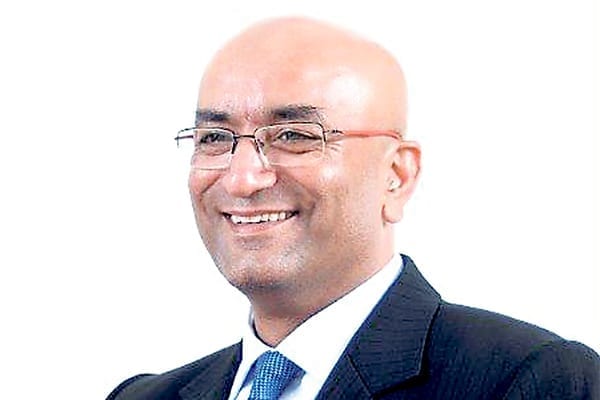 24-04-2020
24-04-2020
Work mobility has been a way of life at Edelweiss Tokio Life, Nilesh Parmar, Edelweiss Tokio Life Insurance

 Insurance Alertss
Insurance AlertssWork mobility has been a way of life at Edelweiss Tokio Life, Nilesh Parmar, Edelweiss Tokio Life Insurance
BCP activated – what all have you done as a part of the same?
Considering our pan India footprint, Edelweiss Tokio Life Insurance had instituted a BCP plan in early March. This also comprised a team that closely monitored progression of COVID cases and developments, across the country. This proactive monitoring and meticulous planning helped us make the timely decision of keeping our branches closed in the interest of employee safety, despite being classified as an essential service.
At Edelweiss Tokio Life, work mobility has been a way of life, the current situation notwithstanding. We already have robust processes that facilitate easy and secure connectivity across branches and employee tranches. So, we haven’t needed any significant upgrades or changes, to manage the transition to remote working.
With VPN base connectivity enabling 100% work from home, all employees have secure access to resources, with marginal upscaling of capacity. While we have been migrating to Microsoft Office 365 in a staggered manner over the past couple of months, we fast tracked this process to facilitate easy, and secure connectivity for our teams. Applications and solutions needed to handle customer requests or employee concerns, continue to be in force.We are also encouraging our employees to connect on Yammer, to foster a sense of community despite geographical distance and self-isolation.
Our local offices and customer service teams have stayed in constant touch with customers via phone calls and emails, communicating alternate modes of communication available, encouraging them to reach out to us remotely. Our focus on digital transformation in the recent years has helped us in making this transition seamless, without interrupting customer servicing. This digital transformation enabled new-age technologies to create scalable and advanced platforms.
For how many days have you procured the necessary resources?
Remote working is not a novel concept for our employees. Most of our workforce already uses laptops and has had locational flexibility, even before the lockdown was implemented. While we have had to procure 50 odd additional laptops for some personnel, our existing processes and culture of agility, have allowed us to be well prepared for this situation. We were already operating most processes under Work from Home even before the country-wide lockdown was announced.
Your BCP is as per recommendations of which industry body, international convention, etc.
While we do not follow any specific template, our BCP plan has been extensively evaluated and prepared, basis all identified scenarios, solutions relevant to these scenarios and impact assessment on business. It does draw from ISO guidelines and is being reviewed on an ongoing basis, to ensure it is current, relevant ad contextual.
How will employee attendance be posted in the system? (will you calculate for how much time the employee is logged in to the system)
Considering most of our employees are on the field interacting with customers, remote attendance mechanisms have been functional at Edelweiss Tokio Life already. Our employees have always been able to mark their attendance digitally and we have not seen any adverse impact on operations or productivity, with remote working.
As for tracking working hours of our employees, that is not in line with the culture of our organisation. We must recognise that the current situation is unprecedented with several challenges – both personal and professional. So, a single lens view would only be detrimental in the current context. Working hours, in my opinion, do not necessarily determine productivity. As an organisation, we must first be cognisant of employee wellbeing. Our leadership has been working closely with respective teams, and so far,we have been effective in maintaining clarity of goals, and ensuring wellbeing of our employees.
What about the feet on street (now since they will work from home and not make customer visits), are they doing virtual customer meets?
The life insurance industry, undoubtedly, has traditionally relied heavily on face-to-face advisory. While the industry has made significant strides in digital, most insurance customers still prefer at least some offline face-to-face interaction. Keeping in line with this customer buying behaviour, the industry has focussed on digitally empowering their offline workforce to effectively manage offline customers interactions as well.
In simple terms, despite the entire customer journey being completely digital, initial interest generation has continued to happen face to face, in many cases. With the current lockdown, advisors and customers both have had to experiment and transition to digital platforms. Within a short span of one month, the insurance industry has already seen significant shifts in customer interaction and customer experience.
Our solution, “Dial for Success” launched during the lockdown period, helps our offline workforce enhance their competencies and build necessary skills to execute seamless customer communication. It provides our teams with requisite information on tackling concerns and queries relating to the ongoing disruption and enables them to recommend relevant products, optimising business activities. 100% of our customer on-boarding is happening digitally now, with our salesforce ably guiding customers to undertake onboarding transactions online.
For the backend, are you more reliant on public cloud?
We have a good mix of inhouse technologies and cloud computing, to better user connectivity on our applications.Our backend is hosted in-house with 30% of our front-end systems hosted on cloud.
Source: Express Computer
